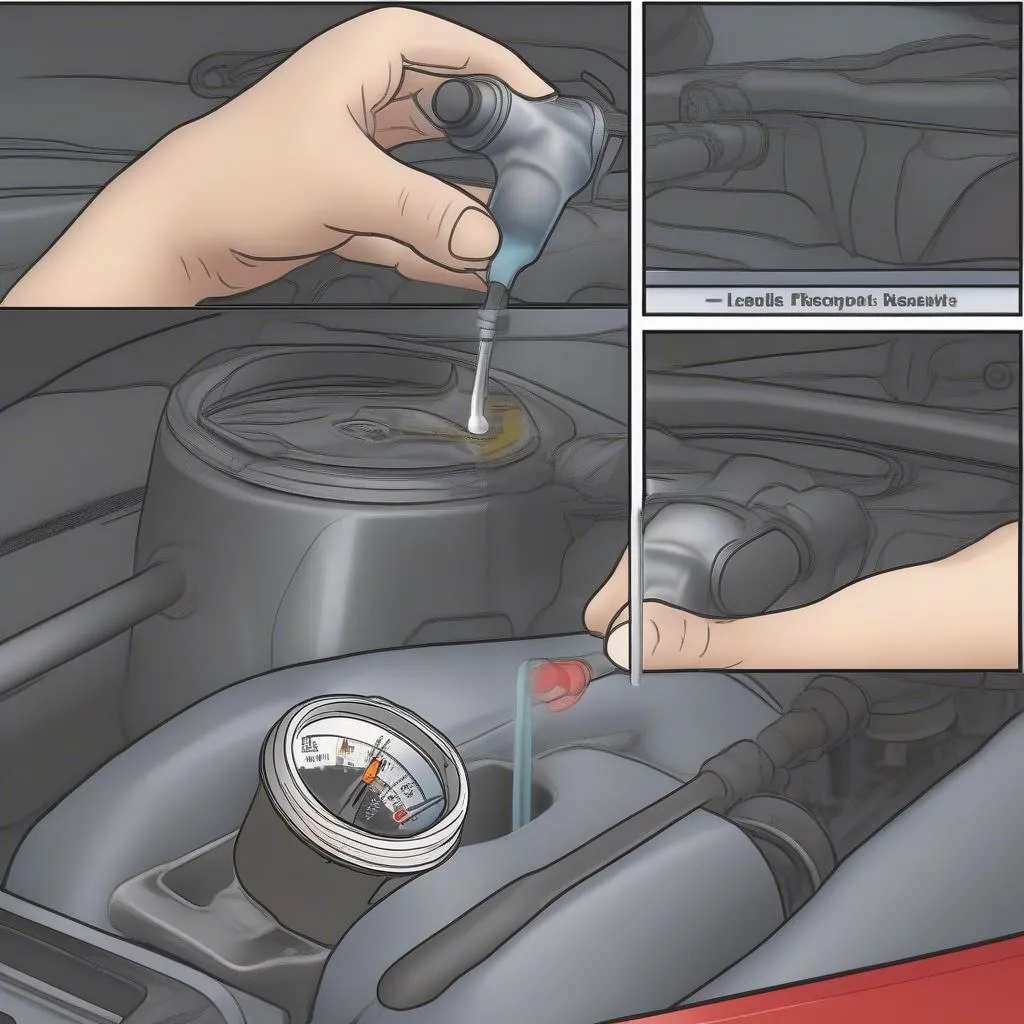It’s a cold winter morning, and you’re rushing to work. You hop into your car and turn on the heater, but it seems like it’s taking forever to warm up! You’re not alone. Many people experience this frustrating problem.
Understanding the Cause of the Delay
Let’s dive into the reasons why your car heater might be slow to heat up. The main culprits are usually related to the car’s cooling system, the heater core, and the thermostat.
From a Mechanic’s Perspective:
A mechanic will tell you that a slow-heating heater is usually a sign of a problem with the cooling system. “The cooling system is responsible for circulating hot coolant throughout the engine, and ultimately to the heater core,” says John Smith, a certified mechanic with over 20 years of experience. “If there’s a blockage or a leak in the system, the coolant won’t flow as efficiently, and your heater won’t be able to heat up properly.”
A Technical View:
The heater core, a small radiator located inside the car’s cabin, is responsible for warming the air that flows through your vents. When the engine is running, hot coolant circulates through the heater core, transferring heat to the air that passes over it. The thermostat is responsible for regulating the temperature of the coolant, ensuring it reaches the optimal temperature for heating your car.
An Economical Consideration:
A slow-heating heater can also be a sign of a more serious problem, potentially leading to higher fuel consumption. A faulty thermostat or a leak in the cooling system can cause your engine to run inefficiently, resulting in a higher gas bill.
Diagnosing the Issue
If your car heater is taking a long time to heat up, here’s what you can do to figure out the problem:
1. Check the Coolant Level:
The first thing to do is check the coolant level. The coolant should be filled to the “full” mark on the reservoir. If the level is low, it could indicate a leak in the cooling system.  Checking Coolant Level
Checking Coolant Level
2. Inspect the Heater Hoses:
Next, check the heater hoses for any signs of damage or leaks. The hoses should be firm and flexible, and they should not be leaking any fluid. If you notice any cracks, bulges, or leaks, replace the hoses immediately.
3. Look for Air in the System:
Air trapped in the cooling system can also cause heating problems. To bleed the air out of the system, you can follow the instructions in your car’s owner’s manual.
Other Possible Causes
While coolant issues are the most common culprits, other factors can contribute to a sluggish heater:
- Faulty Blower Motor: The blower motor is responsible for circulating air through the heater core. If it’s malfunctioning, it won’t be able to effectively circulate the air.
- Clogged Air Filter: A clogged air filter can restrict airflow to the heater core, reducing its efficiency.
- Defective Thermostat: A faulty thermostat won’t allow the coolant to reach the optimal temperature for heating your car.
Troubleshooting Tips
If you’ve ruled out simple issues like low coolant or air in the system, you might need to consider a more in-depth inspection.
- Temperature Gauge: Pay attention to your temperature gauge. If it’s running too hot, it could indicate a problem with the thermostat or the cooling system.
- Diagnostic Tools: You can use a diagnostic tool to scan your car’s computer for any error codes that may be related to the heater.
- Professional Help: If you’re not comfortable diagnosing the problem yourself, it’s best to take your car to a qualified mechanic.
Frequently Asked Questions
Q: What should I do if my car heater is blowing cold air?
A: If your car heater is blowing cold air, it’s likely a problem with the cooling system, the heater core, or the blower motor. It’s crucial to identify the root cause before attempting any repairs.
Q: Is it normal for my car heater to take a while to heat up?
A: It’s normal for a car heater to take a few minutes to warm up, especially on cold days. However, if it takes significantly longer than usual, it could be a sign of a problem.
Q: Can I fix a slow-heating car heater myself?
A: You can try troubleshooting simple issues like checking the coolant level and bleeding the air out of the system. However, if the problem persists, it’s best to seek professional help.
Q: How much does it cost to fix a slow-heating car heater?
A: The cost of fixing a slow-heating car heater can vary depending on the cause of the problem and the severity of the repair.
Conclusion
A slow-heating car heater can be a frustrating problem, but by understanding the potential causes and troubleshooting steps, you can get your car’s heating system back in working order. Remember, if you’re unsure about any repairs, it’s always best to consult a qualified mechanic.
Need help with your car’s diagnostics? Contact us via Whatsapp: +84767531508 for 24/7 expert assistance with your European vehicle.
For additional information on car heating systems, check out these related articles on our website:
